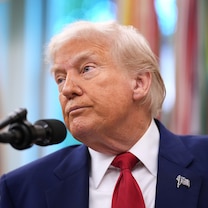High Court Won't Stop Ga. Inmate's Execution
Supreme Court won't hear Troy Davis' case, though seven witnesses recanted.
Oct. 14, 2008 — -- The Supreme Court declined today to intervene in the case of a Georgia death row inmate, clearing the way for him to be executed.
The court temporarily blocked Troy Davis' execution last month while it considered whether to take his case. Davis, 39, had been scheduled to die for the 1989 murder of a Savannah police officer, though several key witnesses had recanted their incriminating testimony. Davis' claims of innocence attracted national attention.
The court's refusal to hear his appeal means that Georgia can set a new execution date, said Davis' attorney Jason Ewart at Arnold and Porter in Washington, D.C.
Davis learned this morning that the court refused to hear his case. When he was told the news, Davis "said he doesn't understand," Davis' mother, Virginia Davis, told ABC News. "Why, if you have any doubts, would you execute someone? I told him we're going to hold onto our faith and believe it can be turned around for us."
Ewart said he was still exploring what other options Davis has at this point. "This was a decision based on law and not on the facts," he said of the Supreme Court's decision. "We still have facts out there that have not had a hearing."
Davis' case has attracted international attention because seven of the nine witnesses who testified against him in his 1991 murder trial have since recanted, several of them saying they felt pressured by police to lie on the stand and implicate Davis. Many of those claims have not been presented in a court hearing.
There was no physical evidence tying Davis to the murder of Officer Mark MacPhail and several new witnesses have come forward to implicate another man in the crime, Davis' lawyers say.
Former President Carter, former Georgia Congressman Bob Barr and Pope Benedict XVI, among others, have called on the state parole board to reduce Davis' sentence to life in prison. The board rejected Davis' clemency petition last month after what it called an exhaustive review of the evidence in his case.
The Supreme Court's decision is "truly shocking, given that significant evidence of Davis' innocence will never have a chance to be examined," Larry Cox, executive director for Amnesty International USA, said today.
Several courts declined to stop the execution, saying there was not enough evidence that Davis had received a constitutionally unfair trial. By a 4-3 decision, the state Supreme Court in March found that the new evidence probably would not have produced a different verdict at trial.



